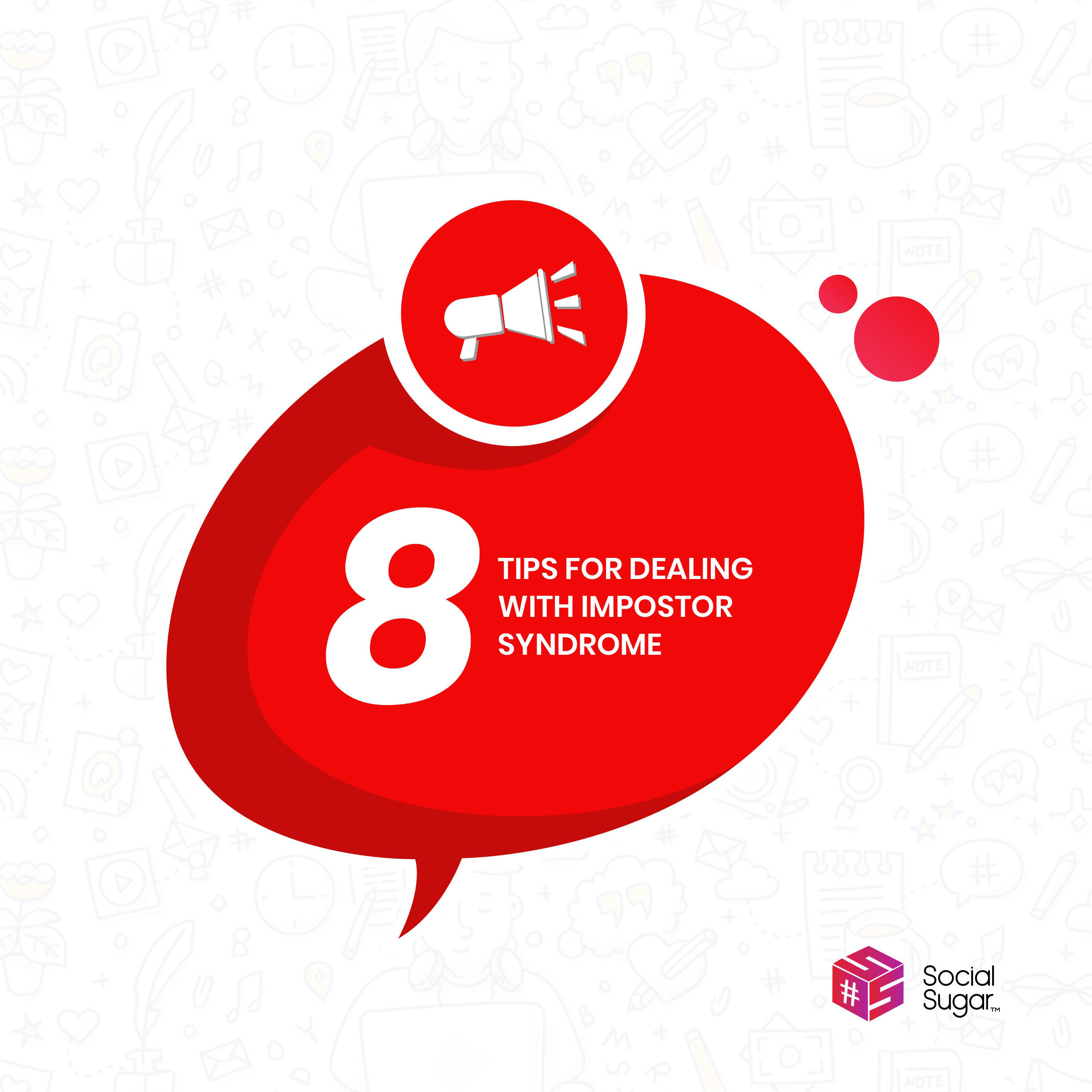“I don’t belong here.”
“I was lucky.”
“What gives me the right to be here?”
“I’m a fraud, and it’s just a matter of time before everyone finds out.”
Did those sound familiar?
At some point in our lives, we have all felt a sense of doubt and unworthiness. If everything you have done has been a result of your knowledge, effort, and preparation, and yet you feel inadequate… There’s a name for that… It’s called impostor syndrome.
People suffering from this condition feel like frauds, even though they are intelligent, skilled, or capable professionals who deserve any commendations or praise they receive. Instead of embracing their accomplishments, they fret that they’ve somehow fooled people into thinking they are what they’re not, and because of this, they live in fear of being “found out.”
Researchers estimate that up to 70% of people have experienced impostor syndrome at some point in their lives. Nonetheless, while experiencing imposter syndrome is quite normal, it is dangerously capable of damaging a person’s career growth and confidence.
Here are a couple of steps to consider to beat impostor syndrome.
Be aware of the warning signs
Sometimes, our common daily activities reveal signs of impostor syndrome, but we often overlook them. It is crucial to recognize these signs as this is the first step towards overcoming the condition.
Some possible signs of impostor syndrome:
- Attributing your success and accomplishments to luck
- Reluctance in accepting praises from people
- Tendering unnecessary apologies
- Your standards are incredibly high; sometimes they may seem unachievable.
- The fear of failure paralyzes you.
- Lack of self-confidence.
- Believing you’re not good enough.
When you talk to other people and yourself, especially about work, pay attention to your choice of language. Do some reflection on why you feel uncomfortable about your success or when others praise you and what it means for your professional life.
Remember you are not alone
The most important way to be encouraged if you have impostor syndrome is to realize that a great many successful people, both men, and women, have built thriving careers despite having to regularly cope with it.
Here are some quotes from The New York Times and Forbes about highly accomplished people who have spoken about their impostor syndrome:
“I have written eleven books, but each time I think, ‘uh oh, they’re going to find out now. I’ve run a game on everybody, and they’re going to find me out.” – Author, Poet & Civil Rights Activist Maya Angelou
“All I can see is everything I’m doing wrong that is a sham and a fraud.” Actor Don Cheadle
“I think even being an actress for over a decade now, I still have imposter syndrome. Where you’re asking yourself, ‘Oh, is this really what I’m supposed to be doing?’” – Maisie Williams ( popularly known as Arya Stark in “Game of Thrones”).
Experiencing Imposter Syndrome is not the end of the world. It affects the best of us…. So don’t worry, you’re not a one.
Do not confuse humility with fear
It’s one thing to feel humble about your hard work and accomplishments, it’s another to feel overwhelmed with fear. When you feel humbled by your achievements, you’re careful enough to not let praises get to your head. You know you deserve the praises, but you’re not carried away by them. Impostor syndrome, on the other hand, makes you discount the value of your expertise. It makes you feel unworthy of praise or recognition no matter how good you are. It makes you fear that the praises you’re receiving are but mere illusions that can be taken away if you’re discovered.
According to Seth Godin in a blog post, “When you feel unworthy, any kind response, positive feedback, or reward feels like a scam, a trick, or just luck.”
The key to overcoming impostor syndrome is finding a healthy balance between feeling unworthy and entitled. Godin also says, “Humility and worthiness have nothing to do with defending our territory. We don’t have to feel like a fraud to be gracious, open, or humble.”
Be kind to yourself
Impostor syndrome often manifests itself in the form of a voice in our heads that offers negative messages such as “you are not smart enough” or “you are a fraud.”
Negative-self-talks is a bad habit that can lead to stress and anxiety,
Be kind to yourself! Change how you talk to yourself… use positive languages. Doing this will not only help reduce your stress and anxiety, but it can also help you build the courage to take risks that yield greater rewards.
For example, if you find yourself thinking, “I just got lucky,” challenge that by thinking, “What steps did I take and what work did I put in to get to this point?”
Then, you can answer your question using short affirmations, focused on the goal you have. In this case, one might be as simple as, “I worked hard… I’ve always worked hard, and if I double down on my hard work, I can achieve far greater..”
Psychologists have found that repeating affirmations like this can improve stress and anxiety levels, perhaps because these positive statements build a bridge into your subconscious mind.
Keep track of your achievements
Impostor syndrome makes it difficult to understand how important your role in your success is. In reality, your efforts, knowledge, and preparation greatly affected the outcome, not as much luck as you might believe.
Keep track of your wins in a private document so that you can prove to yourself that you’re doing well. You can create a digital file on your computer or phone to store screenshots of emails, tweets, dashboard metrics, and whatever makes you feel good about your hard work and preparation.
Discuss it with your mentor and manager
No one should suffer in silence. Talking to someone else about your feelings and experiences will help you cope with impostor syndrome. Sharing them with either a mentor or your direct manager is a good idea.
It will be easier to discuss your struggles with impostor syndrome with your mentor if they work with a diverse team. In sharing your experience with them, you may ask them if they have experienced anything like that, or if they know someone who experienced it. When it comes to their career challenges and mistakes, the best mentors are forthcoming with this information, and chances are, when you ask, they’ll have some insightful lessons to teach you.
You may also want to discuss your experiences with your direct manager. Why? They are better positioned to help you overcome your impostor syndrome based on your current position.
Say “yes” to new opportunities
Sometimes, saying “yes” to new opportunities is a problem, especially if you’re stressed out or overwhelmed. However, people with impostor syndrome often decline career-building opportunities because they doubt their abilities.
You need to distinguish between the voice in your head that tells you not to take advantage of an opportunity because you are unworthy versus the voice telling you not to because you have too much on your plate. The former is your impostor syndrome speaking. The latter can be a reasonable reason.
Don’t let the voices in your head hold you back. Taking advantage of opportunities as they come can be a great resource to help you learn, improve, and advance in your career.
When taking on a project you’re unsure about, remember that you were chosen for a reason. There’s nothing wrong with asking questions along the way and learning new things.
Take advantage of the feeling
Impostor syndrome is difficult to get rid of completely, especially if you’ve had it for a long time. The symptoms get more intense especially when you’re succeeding at an alarming rate. It is established that successful people like Maya Angelou, Maisie Williams, and Don Cheadle feel that way after much accomplishment.
So, in dealing with Impostor syndrome, It’s not about getting rid of the symptoms completely at once; it’s about taking deliberate steps daily to ensure it doesn’t hinder your success. And gradually overcoming it, one step at a time.
In summary, while it’s freeing to not have to deal with Impostor syndrome at all, it is still quite possible to survive despite it. If you enjoyed this article, be sure to let us know what your favorite part was by dropping a comment. Until next time, bye.


0 Comments